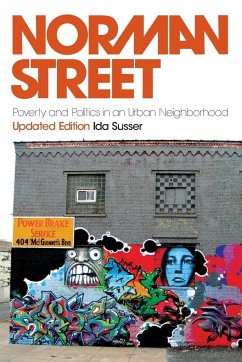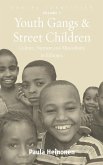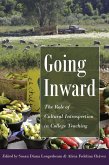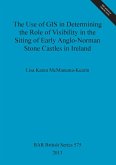Norman Street is the first serious examination of a scenario that appears likely to be played out again and again as federal budget policies result in reduced services for urban areas across the country. Based on a three-year study conducted in Brooklyn's Greenpoint/Williamsburg section, the book is an in-depth, detailed description of life in a multi-ethnic working class neighborhood during New York City's fiscal crisis of 1975-78. Now updated with a new introduction to address the changes and events of the thirty years since the book's original publication, its lessons continue to demonstrate the impact of political and economic changes on everyday lives. Relating local events to national policy, Susser deals directly with issues and problems that face industrial cities nationwide: ethnic and race relations are analyzed within the context of community organization and local politics; the impact of landlord/tenant relations, housing discrimination, and red-lining are examined; and the effects on the urban poor of gentrification are documented. Since neighborhood issues are often of primary concern to women, much of the book concerns the role of women as community organizers and their integration of this role with domestic responsibilities.
Based on a three-year study of Brooklyn's Greenpoint-Williamsburg area, Norman Street is an in-depth, detailed description of life in a multi-ethnic working class neighborhood during New York City's fiscal crisis of 1975-78. Now updated with a new introduction to address the changes and events of the thirty years since the book's original publication, its lessons continue to demonstrate the impact of political and economic changes on everyday lives. Over the decades, Greenpoint-Williamsburg has become home to artists, actors, writers and young people with alternative cultural aspirations. Susser documents how these groups, in many ways, have joined with the remaining working class population to build a thriving community that is now threatened with displacement by municipal rezoning which has facilitated massive plans for new corporate investment. Increasingly prescient at a moment of economic crisis when people are again occupying public spaces in major American cities, spurred to collective action by mounting economic inequalities and the government's role in perpetuating them, Susser's study of change, action, and conflict in a neighborhood that has become emblematic of urban transformation-for better and worse-has much to say to us today.
Hinweis: Dieser Artikel kann nur an eine deutsche Lieferadresse ausgeliefert werden.
Based on a three-year study of Brooklyn's Greenpoint-Williamsburg area, Norman Street is an in-depth, detailed description of life in a multi-ethnic working class neighborhood during New York City's fiscal crisis of 1975-78. Now updated with a new introduction to address the changes and events of the thirty years since the book's original publication, its lessons continue to demonstrate the impact of political and economic changes on everyday lives. Over the decades, Greenpoint-Williamsburg has become home to artists, actors, writers and young people with alternative cultural aspirations. Susser documents how these groups, in many ways, have joined with the remaining working class population to build a thriving community that is now threatened with displacement by municipal rezoning which has facilitated massive plans for new corporate investment. Increasingly prescient at a moment of economic crisis when people are again occupying public spaces in major American cities, spurred to collective action by mounting economic inequalities and the government's role in perpetuating them, Susser's study of change, action, and conflict in a neighborhood that has become emblematic of urban transformation-for better and worse-has much to say to us today.
Hinweis: Dieser Artikel kann nur an eine deutsche Lieferadresse ausgeliefert werden.








